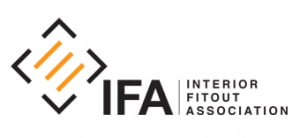
With only two weeks to go until the end of another financial year, there’s no time like the present to get the books in order.
We’ve taken a look at what the ATO wants you to know in the lead up to EOFY…
Instant asset write-off extended and increased
Businesses with a turnover from $10 million to less than $50 million are now eligible for the instant asset write-off. This applies to assets purchased and first used or installed ready for use up to $30,000 each from 7.30pm (AEDT) on 2 April 2019 to 30 June 2020.
Businesses may purchase and claim a deduction for multiple assets each under the $30,000 threshold… e.g. you may purchase a new van worth $22,000 and then purchase new equipment at a cost of $14,000, in the same financial year, and claim both of these as each of the assets are under the $30,000 threshold.
For assets over $30,000 the general depreciation rules apply.
Small businesses (turnover up to $10 million) are also eligible for the instant asset write off of $30,000 for assets purchased from 7.30pm (AEDT) 2 April 2019 to 30 June 2020. For purchases prior to this date, different thresholds apply for small businesses.
Single Touch Payroll – don’t forget changes
As we’ve reported previously, if you are reporting through Single Touch Payroll (STP) your end of financial year process has changed.
These changes mean you are no longer required to provide a payment summary to your employees or lodge a payment summary annual report for any information that has already been reported and finalised through STP.
If you won’t be providing a payment summary to your employees this year, remember to let them know. Your employees will be able to see their information reported through STP in their ATO online account via myGov. This information will now be referred to as an income statement. If your employees don’t have a myGov account, they can create on and link it to the ATO.
If you started reporting through STP during the 2018–19 financial year, you will have until 31 July 2019 to make the finalisation declaration within your software solution.
FBT – get it right
If you’re an employer, the ATO is warning they’re looking out for FBT mistakes… In this year’s updated list of ‘What attracts our attention’, there are six items that specifically relate to fringe benefits tax (FBT). To stay off the radar, make sure you’re on track with:
- failing to report motor vehicle fringe benefits, incorrectly applying exemptions for vehicles or incorrectly claiming reductions for these benefits
- mismatches between the amount reported as an employee contribution on an FBT return compared to the income amounts on an employer’s tax return
- claiming entertainment expenses as a deduction but not correctly reporting them as a fringe benefit, or incorrectly classifying entertainment expenses as sponsorship or advertising
- incorrectly calculating car parking fringe benefits due to:
- significantly discounting market valuations
- using non-commercial parking rates
- not being supported by adequate evidence
- not reporting fringe benefits on business assets that are provided for the personal enjoyment of employees or associates
- not lodging FBT returns (or lodging them late) to delay or avoid payment of tax.
Improving super guarantee compliance
A number of measures have been enacted to protect the super entitlements of employees, focusing on improving employers’ compliance with their Super Guarantee (SG) obligations.
Starting back in April, in summary:
- employers who feel they could benefit from more knowledge in relation to their super obligation will have access to a new, free, online education course (and assessment) that they can complete at a time that suits them.
- employers who are not meeting their SG obligations may be directed to complete the course.
- business owners/directors may be held personally liable for amounts owing through Director Penalty Notices and security deposits.
- The ATO can provide employees with information regarding the non-payment of SG by employers, including what actions we are taking to recover the outstanding amounts.
Getting your tax responsibilities sorted as early as possible can be a big weight off your shoulders AND get you a well-deserved return sooner rather than later. With only a couple of weeks to go, put aside some time and get your files ready so you can start the next financial year on the right foot.
